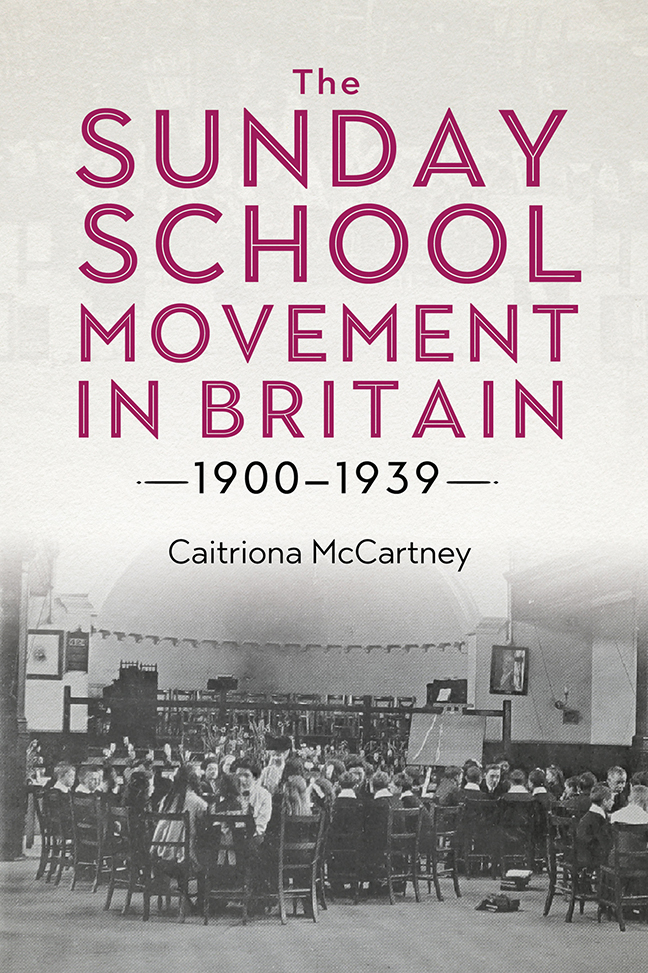Book contents
- Frontmatter
- Dedication
- Contents
- List of Illustrations
- Acknowledgments
- List of Abbreviations
- Introduction
- 1 British Sunday Schools before the First World War, 1900–14
- 2 British Sunday Schools and the First World War, 1914–18
- 3 Sunday Schools in the Religious Life of the British Forces, 1914–18
- 4 British Sunday Schools between the World Wars, 1918–39
- 5 Teaching, Training, and Teachers: Reforming the Sunday School Movement, 1900–39
- 6 British Sunday Schools and the World, 1900–39
- Conclusion
- Bibliography
- Index
- Studies in Modern British Religious History
4 - British Sunday Schools between the World Wars, 1918–39
Published online by Cambridge University Press: 11 January 2024
- Frontmatter
- Dedication
- Contents
- List of Illustrations
- Acknowledgments
- List of Abbreviations
- Introduction
- 1 British Sunday Schools before the First World War, 1900–14
- 2 British Sunday Schools and the First World War, 1914–18
- 3 Sunday Schools in the Religious Life of the British Forces, 1914–18
- 4 British Sunday Schools between the World Wars, 1918–39
- 5 Teaching, Training, and Teachers: Reforming the Sunday School Movement, 1900–39
- 6 British Sunday Schools and the World, 1900–39
- Conclusion
- Bibliography
- Index
- Studies in Modern British Religious History
Summary
The news of the armistice was greeted with relief and joy in Britain. The country, however, was in a fragile condition. The pre-war certainties had been shaken by the conflict. The dwindling electoral prospects of the Liberal Party, the Easter Rising, the rise of Sinn Fein, the abandonment of the gold standard in 1919, industrial unrest, rising unemployment, various strikes, and uprisings in Eastern Europe all contributed to a degree of uncertainty. Like other countries, it was also in the middle of an influenza pandemic. Jose Harris has suggested that an observer looking at the state of Britain in 1919 would have perhaps predicted a prolonged period of class war. For the churches, the post-war period was a time of theological tensions. The end of the war did not bring about calm in national and religious life.
It was within this atmosphere that the Sunday schools operated. Throughout the conflict, they had been waiting to resume their work without restrictions and for their members to return. The day had finally come. This feeling of elation, however, was tempered by a profound sense of loss. Some of the scholars and teachers from schools had made the supreme sacrifice. Efforts turned towards commemorating those who had fallen and supporting those who had been affected by the war. This chapter will examine how the schools responded in the years following the pivotal moment of the end of the First World War. It will also consider whether the records of the schools support the prevalent conclusion that the First World War caused religious decline in Britain.
Thanksgiving, Remembrance, and Memorialisation
With the realisation that the war was finally over there was great excitement within the Sunday school movement. The moment they had so desperately prayed and hoped for had finally come. Their scholars and fellow teachers would soon be returning home. Before the war ended, The Young Crescent had remarked that ‘a visit to a recent evening service gave one a taste of the good days to come. […] A flying visit from AC Walter Ridpath completed our surprises for the month, & what is more gave us a good vision of our reunion in the future’. This vision started to slowly turn into a reality.
- Type
- Chapter
- Information
- The Sunday School Movement in Britain, 1900-1939 , pp. 95 - 124Publisher: Boydell & BrewerPrint publication year: 2023



